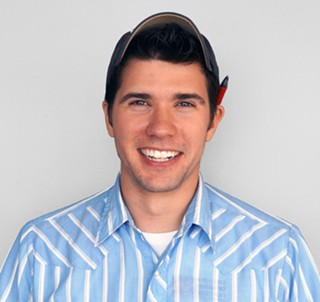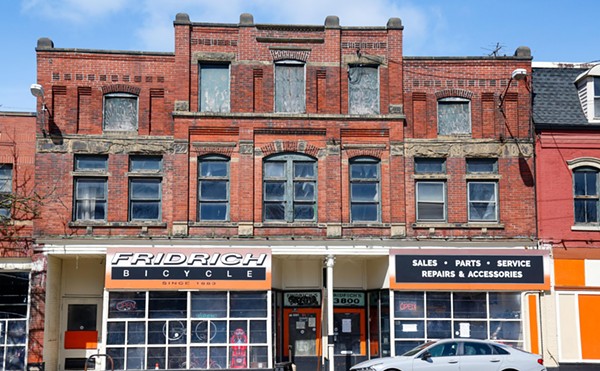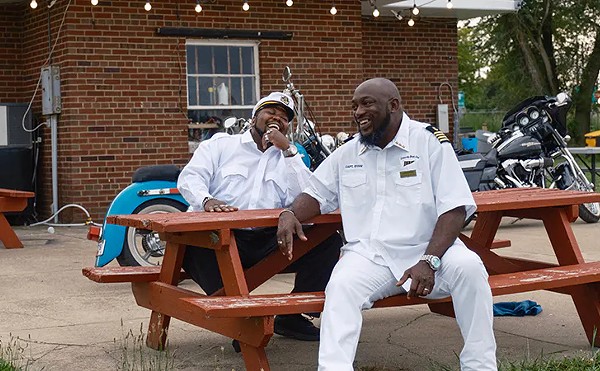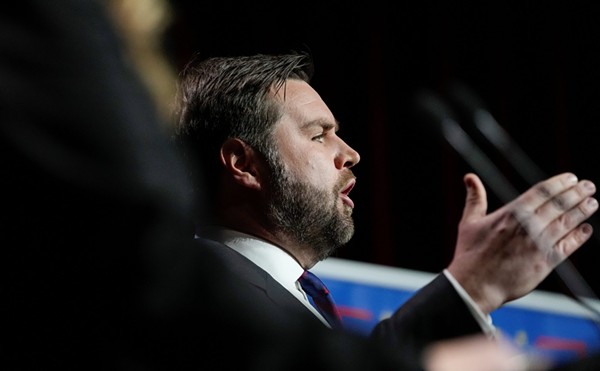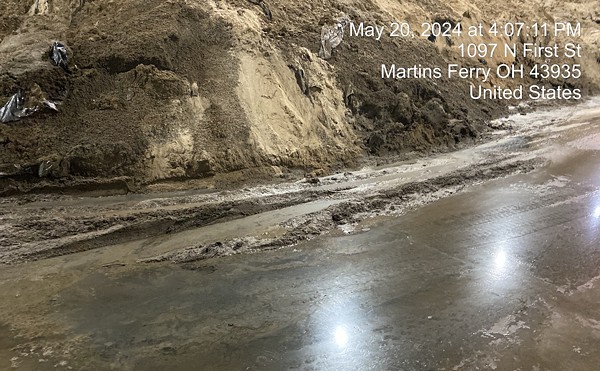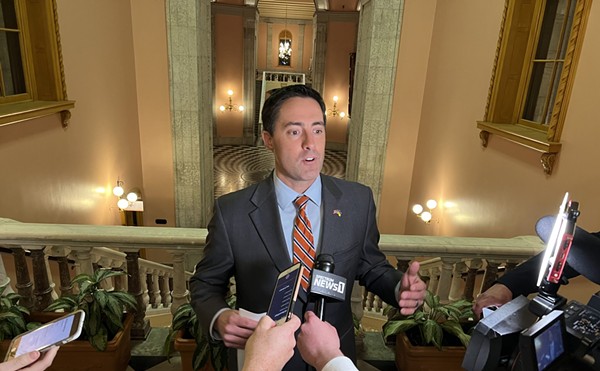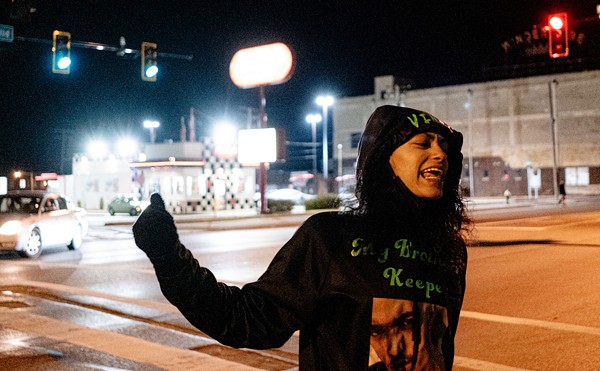Mike Olszewski talks like an old-school radio host. But with his goatee and spectacles, he looks more like what he is: a college professor. Olszewski teaches courses on media, pop culture and public speaking at Kent State, the University of Akron and Notre Dame College, and with his wife, Janice, he's written a book all about Cleveland's critical role in the early age of television: its biggest stars, its most iconic moments and its inevitable evolution. Scene caught up with him one morning last week before class at KSU.
Sam Allard: Going through this book, I'm embarrassed to say that I knew very few of the personalities about whom you talk so reverently. Do you ever feel like you're writing an ancient or lost history?
Mike Olszewski: When my wife and I were first talking about doing this, that was the one thing: So many of these people had an influence on parents and grandparents and eventually on their kids, and we felt like we had to preserve their histories. Media tends to be disposable. It's like tap water. You turn it on when you need it, you turn it off when it's over. And we forget the influence that a lot of these folks had. We were the first generation of Cleveland television; we got to see a lot of the pioneers. Back then everything was new. And at the same time, practitioners were given a responsibility: to use the media for the benefit of those watching.
SA: So Cleveland had a pretty significant impact.
MO: Here's a good example. Jimmy Zero from the Dead Boys once told me that punk rock took off in Cleveland — one of the few pockets around the country where it did — because of a guy named Ghoulardi ['60s late-night horror show host on Channel 8], an anarchist on TV who showed that you could use anarchy for entertainment. Break the rules and have some fun doing it: That was Cleveland.
SA: What other rules was Cleveland breaking? Any major landmarks?
MO: Absolutely. Keep this in mind. We were a very segregated, very conservative society when TV was first taking off in the 1940s. You didn't see anybody on TV except white guys. However, the first employee at WEWS was Dorothy Fuldheim, a Jewish woman!
SA: There's a great story in the book about her confronting Hitler.
MO: I love that. She went right up to him. She spoke fluent German, so that helped, and she didn't let on that she was Jewish, obviously.
SA: Who else?
MO: Look at Betty Cope. She rode us through the glass ceiling at a time when people thought that nobody except men should be working in writing and TV jobs. George Anthony Moore, he's another pioneer. He was a black man. Look at The Morning Exchange. It was the template for Good Morning America. They came here to see what was going on, and why the show was so popular, and what they could do to adapt it for the national stage.
SA: Some national celebs had their roots here too, I gather.
MO: Sure. We had a lot of the people —Jack Parr, Phil Donahue, Tom Snyder — so many of them got their start in Cleveland. Al Roker once said, after he came to Cleveland, that if he didn't get the call back to New York, he would've been perfectly happy staying. Kid-show hosts, talk-show hosts. Everything. Don Novello, the guy who played Father Guido Sarducci on SNL, he was born in Lorain.
SA: And there's some mention in the book about TV's influence on other industries as well.
MO: Here's one about Linn Sheldon, [TV's "Barnaby"]. McDonald's was having trouble in 1961. They only had six area restaurants. They had this idea: Why don't we see if we can target the youth market? So they all pooled their money together, put it into advertising with Barnaby. They did it on a Thursday and by the weekend they were out of food. And they adopted that as the national advertising model. As a result, they offered Linn Sheldon the chance to own his own McDonald's, but he said, "What am I gonna do with hamburgers?" He later told me that he wished he would've rethought that decision.
SA: In this day and age, is it possible to still have intimate connections with local TV personalities?
MO: We're not gonna see that kind of affiliation, that kind of relationship, with local people anymore, I don't think. There's a shelf life for a lot of the current people. You're not gonna see people like Dorothy Fuldheim, well into their 80s, on TV anymore. Now, once you're past 35, it's very likely you're looking for another job. I think the options and the convenience of cable and TV on demand is wonderful, but it really does hurt us in terms of those relationships.
SA: What do you see as the future of TV?
MO: It's interesting you mention that. Just the other day, Netflix predicted the end of the networks by the year 2030, and that may be the case. If you're looking at radio, I mean, once wireless radio is available in cars, it's gonna be the Wild West. Instead of 200 stations on Sirius, you'll have 200,000 stations of wireless Internet. I think there will always be a need for innovative local programming, maybe even more in the future. It's just a different form of delivery than sitting in front of your television.
SA: One chapter in the book is all about homegrown talent that flocked to NYC or L.A. Do you see a reason for people to stay here these days, employment-wise?
MO: Dan O'Shannon, the producer who wrote our forward, has said that within a few years, Hollywood is going to be a tourist attraction and that's it, because it's just too expensive to do business there. So many programmers are moving to places like Vancouver or even to Cleveland to do shows. I think that's one thing that's gonna happen: people connecting through the Internet and even greater cooperation outside of Hollywood. Plus, don't forget that there's a great deal of loyalty between Clevelanders. There's a famous story that if you go to a party in Hollywood and see two people from Cleveland talking, don't go over and talk to them unless you're from Cleveland, because that's all they're talking about. We just have this affinity.
SA: TV creates affinities too, I think.
MO: Well, that's one of the reasons Jan and I wrote the book! Think about this: If you meet somebody new, what do you talk about? TV, right? We all have our favorite TV shows and TV stories. We can all relate to that. It's a common link.

